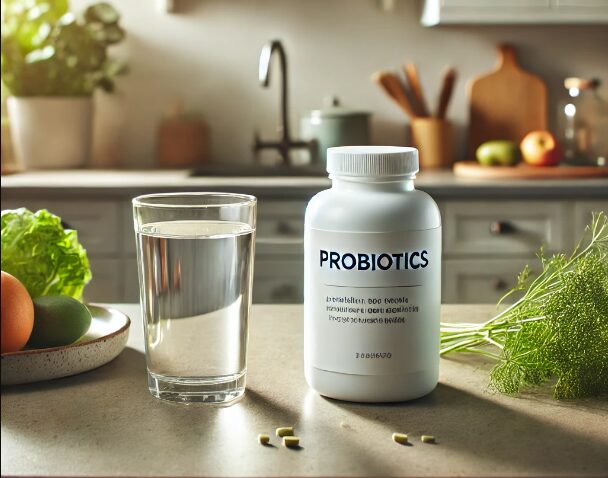Supporting your toddler’s immune system is vital for their overall health, especially as they explore the world around them. Ensuring they receive essential vitamins and minerals can help protect them from common illnesses, boost their growth, and enhance their development. In this guide, we’ll explore the most important nutrients for toddlers, and how they contribute to a strong immune system.
Key Vitamins for Toddler Immune Health
Supporting a toddler’s immune system is crucial for their growth and overall well-being. Key vitamins, such as A, C, D, and E, play vital roles in boosting immunity, promoting healthy development, and protecting against common illnesses. These essential nutrients help fortify the body’s natural defenses, ensuring toddlers have the strong immune support they need during their formative years
✓ Vitamin A:
This nutrient supports immune system integrity by maintaining healthy skin, tissues, and mucous membranes, which act as barriers to infections. Foods rich in vitamin A include sweet potatoes, carrots, and spinach.
✓ Vitamin C:
This powerful antioxidant helps protect cells from damage, boosts the production of white blood cells, and supports skin health, which is the body’s first line of defense against pathogens. Vitamin C can be found in fruits like oranges, strawberries, and kiwis, as well as vegetables such as bell peppers and broccoli.
✓ Vitamin D:
Essential for bone development and immune health, Vitamin D aids in regulating the immune system by enhancing the pathogen-fighting effects of white blood cells. It can be obtained through sunlight exposure, fortified foods like milk, and supplements if necessary.
✓ Vitamin E:
An antioxidant that supports the immune system by neutralizing harmful free radicals. Vitamin E is found in foods like almonds, sunflower seeds, and avocados.
✓ Zinc: Zinc is crucial for the development and function of immune cells. A deficiency in zinc can lead to a weakened immune response. Good sources of zinc include meat, legumes, nuts, and seeds.
✓ Iron: Iron supports the production of hemoglobin, which helps transport oxygen throughout the body. It also assists in immune cell proliferation. Toddlers can get iron from meats, fortified cereals, and leafy greens like spinach.
✓ Magnesium: Plays a role in energy production and maintaining immune balance.
INSIDER TIPS: Nutrilite offers a variety of multivitamins, including gummies and tablets, that contain essential vitamins and minerals that our bodies need along with powerful plant nutrients. I WANT TO LEARN MORE.
Additional Nutrients for Immune Support
“In addition to the core vitamins and minerals, several other nutrients can further enhance immune function. These nutrients work synergistically with essential vitamins to promote overall health and resilience, offering extra protection against illness. By ensuring a well-rounded intake of these elements, you can support your body’s natural defenses and improve your immune response.”
✓ B Vitamins:
The B-complex vitamins, particularly B6 and B12, are essential for the production of antibodies and healthy red blood cells. Whole grains, eggs, and dairy products are rich in these vitamins.
✓ Selenium: Acts as an antioxidant, protecting the body from oxidative stress and boosting immune system efficiency.
✓ Omega-3 Fatty Acids:
Omega-3s help regulate immune responses and reduce inflammation. Fish like salmon, chia seeds, and flaxseeds are great sources of these essential fats for toddlers.
✓ Probiotics:
Probiotics help balance the gut microbiome, which plays a crucial role in immune health. Yogurt, kefir, and other fermented foods provide natural probiotics that can be easily incorporated into a toddler’s diet.
INSIDER TIPS: Nutrilite offers a variety of multivitamins, including gummies and tablets, that contain essential vitamins and minerals that our bodies need along with powerful plant nutrients. I WANT TO LEARN MORE.
Quick Facts
○ Toddlers need a balanced diet rich in fruits, vegetables, and whole grains to support immune function.
○ Sunlight is an important source of Vitamin D, but supplements may be necessary in winter months or in less sunny regions.
○ Gut health, supported by probiotics, is linked to a stronger immune system.
○ Zinc and iron deficiencies can weaken a toddler’s immune response.
○ Adequate hydration is key to maintaining all bodily functions, including immune health.
○ A well-rounded diet is always better than relying solely on supplements.
INSIDER TIPS: Nutrilite offers a variety of multivitamins, including gummies and tablets, that contain essential vitamins and minerals that our bodies need along with powerful plant nutrients. I WANT TO LEARN MORE.
Q&A for Parents
Q: How can I ensure my toddler is getting enough Vitamin C?
A: Offer fruits like oranges and strawberries, and incorporate vegetables like bell peppers into their meals. A well-rounded diet typically provides sufficient Vitamin C.
Q: Should my toddler take Vitamin D supplements?
A: If your child has limited sun exposure or drinks little fortified milk, consult your pediatrician about adding a Vitamin D supplement to their routine.
Q: Can too much iron be harmful?
A: Yes, excessive iron can be toxic. Stick to recommended doses from food sources or supplements as directed by a healthcare provider.
Q: What are good sources of probiotics for toddlers?
A: Yogurt with live cultures, kefir, and other fermented foods are excellent sources of probiotics. Look for sugar-free options suitable for young children.
Q: Is it okay to give my toddler multivitamins?
A: Multivitamins can be helpful if your toddler is a picky eater or has specific dietary restrictions. However, a balanced diet should always be the first goal.
Q: How does hydration affect the immune system?
A: Water helps flush out toxins and aids in nutrient absorption, both of which are essential for immune health. Encourage your toddler to drink water throughout the day.
Q: What foods are high in zinc?
A: Meat, legumes, nuts, seeds, and fortified cereals are great sources of zinc for toddlers. These can be incorporated into meals and snacks.
Q: How do omega-3 fatty acids help my child’s immune system?
A: Omega-3s reduce inflammation, which supports a balanced immune response. Including sources like fish, chia seeds, and walnuts in your child’s diet can boost their immune health.
Q: How much sleep does my toddler need for a healthy immune system?
A: Toddlers need 10-14 hours of sleep per day, including naps, to support immune function and overall growth.
Q: What can I do if my toddler refuses to eat certain nutrient-rich foods?
A: Get creative with meal preparation. For example, blend spinach into smoothies, hide vegetables in sauces, or offer supplements under the guidance of a healthcare provider.
INSIDER TIPS: Nutrilite offers a variety of multivitamins, including gummies and tablets, that contain essential vitamins and minerals that our bodies need along with powerful plant nutrients. I WANT TO LEARN MORE.
Conclusion
A well-nourished toddler is better equipped to fend off common illnesses and stay healthy. Ensuring your child gets essential vitamins like Vitamin C, D, A, zinc, iron, and probiotics will support their growing immune system. While supplements can be helpful, they should never replace a balanced, nutritious diet. Consult with your healthcare provider to determine the best nutritional plan for your toddler and promote long-term health and well-being.
Do you know which Nutrilite™ multivitamin is right for your toddler?
For a wider variety of plant-based nutrients, including vitamins, supplements, healthy eating, weight management, heart health, sports nutrition, and energy products, all designed to support your journey to health and well-being, please Visit: Harness the power of plants.
Recommended reading for Essential Nutrients for Adults:
“Building Stronger Immunity: Essential Nutrients for Adults“(Read Time: 5 Minutes)
You can visit the NIH for extended Knowledge and Understanding of Dietary Supplements.





[…] “Essential Vitamins for Toddlers: Boost Your Child’s Immune System” (Read Time: 6 Minutes) […]